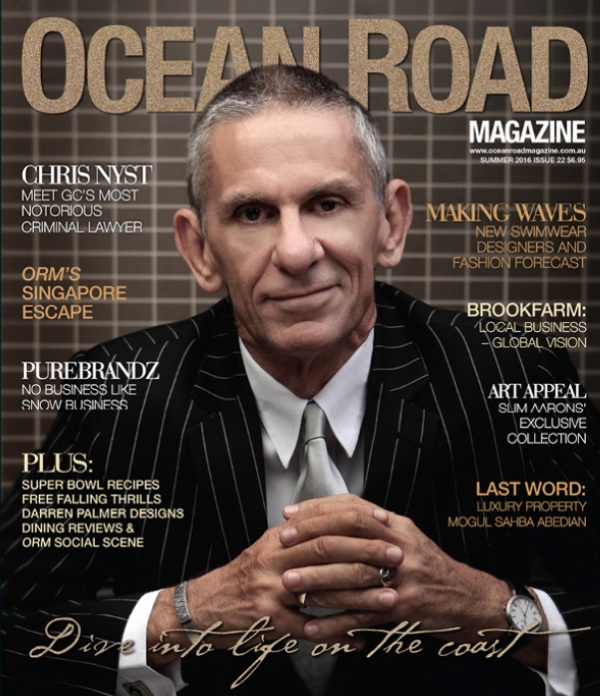In a time of increasingly vigorous criticism of some of our court processes, many were taken aback when Victoria’s Supreme Court recently hit back at its detractors, carpeting three politicians, a journalist and a newspaper editor, over public statements criticising the sentencing of terror offenders. A couple of months ago three ministers of the Turnbull government, – Greg Hunt, Alan Tudge and Michael Sukkar – publicly slammed Victorian judges for what they characterised as inappropriate leniency and “ideological experiments” in sentencing terrorists, Mr Sukkar asserting the judges’ approach “has eroded any trust that remained in our legal system.”
When the Court, in response, ordered all three to appear before it and explain why they should not be prosecuted for contempt of court, many were shocked and surprised.
They shouldn’t have been. Respect for our courts is an important feature of the rule of law, and the ministers involved, each of whom is a qualified lawyer, were no doubt fully cognisant of that. In a modern world of populism and consumerism, the courts are slow to exact such respect by punitive sanction. When they do, it invariably sounds a timely reminder.
In June 1988 a 52-year-old bookmaker by the name of Michael Hawke, better known by his nick-name ‘Shifty,’ was called to give evidence at the Fitzgerald Commission of Inquiry into Police Corruption in Queensland. He was one of a long list of starting-price bookies scheduled to take the stand, and his appearance was hotly anticipated.
Senior Counsel assisting the Commission, the tenacious Doug Drummond QC, had summoned dozens of alleged illegal bookmakers to give evidence, grilling them relentlessly over graft payments said to have been made to the infamous police bagman Jack Herbert, who recorded their detail meticulously (if with hindsight a little unwisely) in his personal tally sheets, which eventually fell into the hands of Fitzgerald. As the motley procession of accused crooked bookies dutifully took to the box, each of them firmly laid his hand on the bible, solemnly swore to tell the truth, the whole truth and nothing but, then earnestly denied ever paying a zack to Jack Herbert or anyone else.
In those days dobbing was strictly off-limits, and though the Commission was offering immunity from all prosecution, no one was biting. As one witness after another innocently shrugged his shoulders and repeated the well-worn mantra, each risking a 14-year gaol term for perjury, Inquiry investigators began to despair that the break-through they’d hoped for might never come.
Then Shifty took the stand. As it turned out he adopted a spectacularly different course, and one that later had some jokers quipping he was the only witness to give honest answers. Certainly Hawke didn’t lie when asked about his making payments to Herbert. But he didn’t admit it either. In fact he didn’t say much at all. It soon appeared he wasn’t about to tell tales about anyone, including himself, but he equally wasn’t prepared to tell lies. Hawke simply refused to answer the Commissioner’s questions, despite multiple directions to do so.
As a result Commissioner Fitzgerald cited the witness for contempt of the Commission, and he was duly despatched to Boggo Road Gaol to ‘purge his contempt.’ That meant he could either come back to the witness box and redeem himself by answering the questions, or sit out the duration of the two-year inquiry in a prison cell. He chose the latter.
But it had the desired effect. By the gaoling of Shifty Hawke for an open-ended, unspecified term, the Inquiry delivered a powerful message to the people of Queensland. The rule of law prevailed, even in the Deep North, and the Commission was prepared to invoke it.
The recent threatened citing of the three federal ministers had, it seems, a similarly salutary effect. The independence of the judiciary from political influence is a key feature of any democracy and, in attacking the courts as they did, the ministers were way out of line. Unlike Shifty Hawke, in this case it’s unlikely anyone was heading for gaol, but potentially there was an arguably even more serious consequence. If any one of the ministers was convicted of contempt they would no longer be eligible to sit in the parliament and, given the federal government’s one-seat majority, that could have brought down the federal government.
Oooops!
In the end each of the ministers ultimately avoided contempt charges after profusely apologising to the court for their comments and promising to “exercise great care in the future.” The Victorian Court of Appeal ultimately accepted their “full and unqualified apology,” but only after a “stern discussion” with Solicitor-General Stephen Donoghue and days of reflection. In so doing it emphatically decried the ministers’ breach as “fundamentally wrong,” and warned in the strongest terms that it “expected there will be no repetition of this type of appalling behaviour.”
Hopefully, the message is clear.
This article was first published in the Gold Coast Magazine, Aug/Sep 2017 Issue which can be viewed here.












